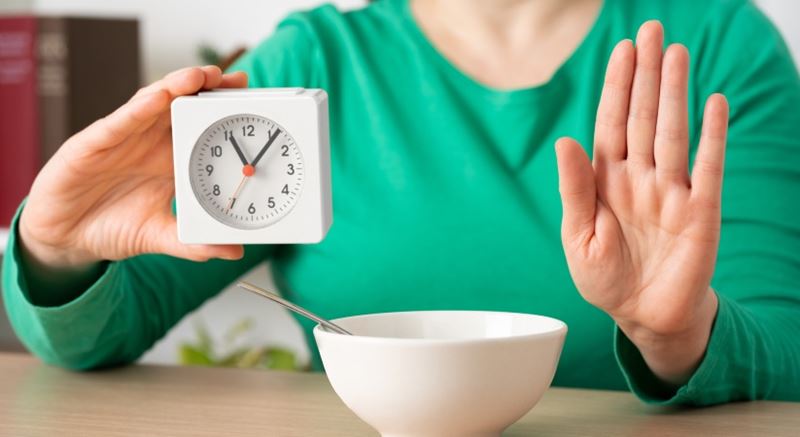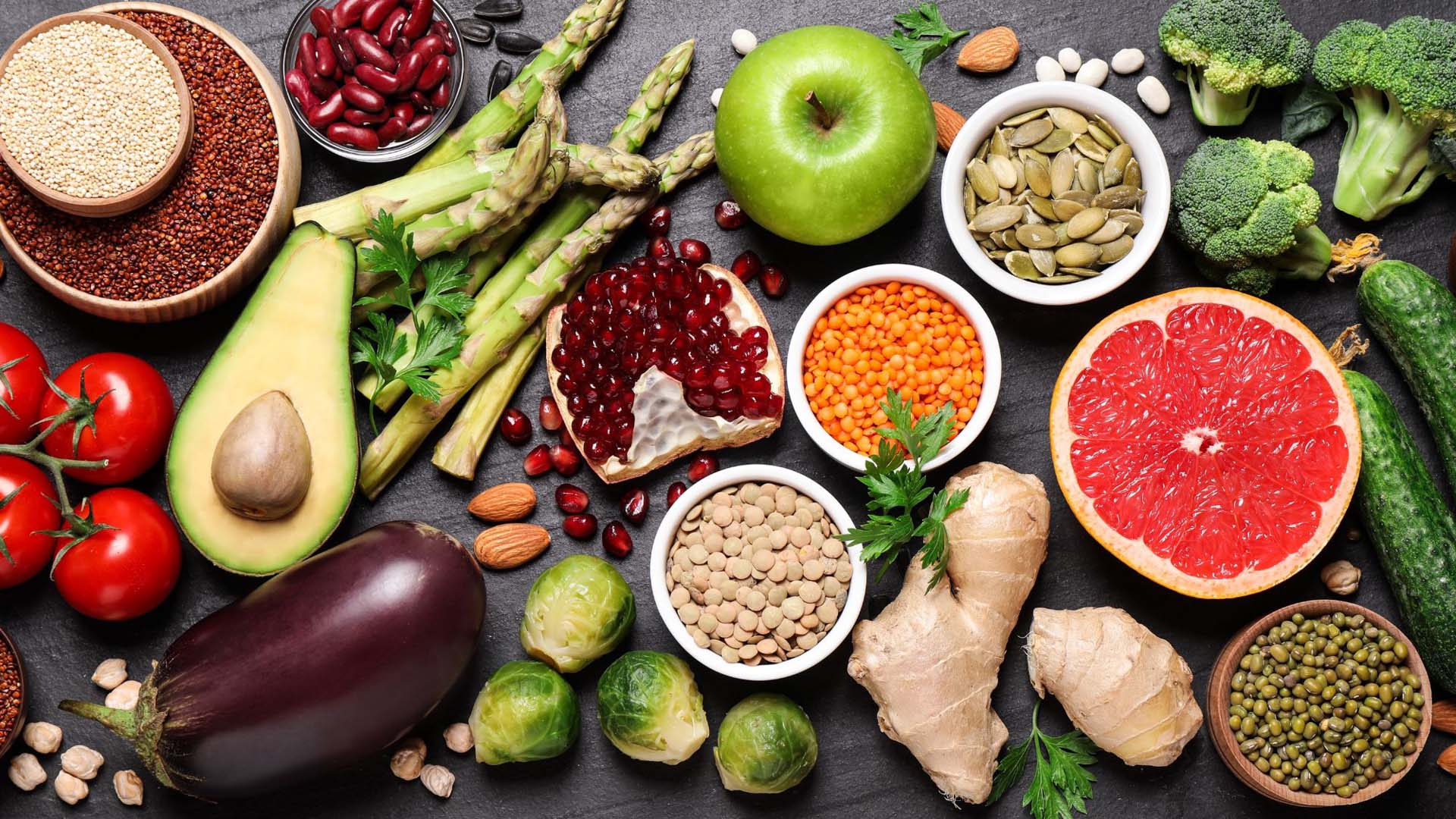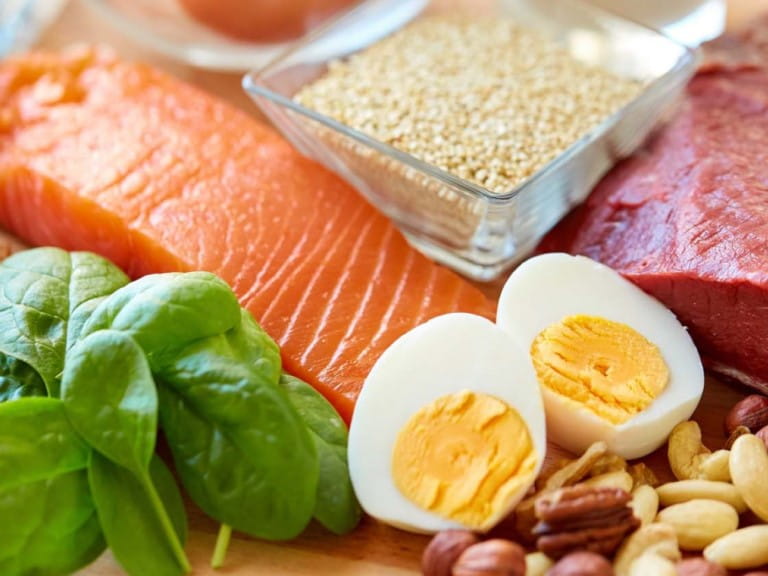How to lose weight without fat jabs - and the fads to avoid
As the cost of weight-loss injections rise, what are the alternatives? Experts offer advice on the best and safest ways to shed pounds.

As the cost of weight-loss injections rise, what are the alternatives? Experts offer advice on the best and safest ways to shed pounds.

If you’re one of the estimated 1.4 million people in the UK who have been paying privately every month for Mounjaro and other GLP-1 (glucagon-like peptide) jabs that suppress appetite by blocking hunger hormones, the sky-high price rises may mean you’ll soon be having to rely on old-fashioned dieting/healthy eating to maintain and lose weight.
“The evidence is that 70% of people gain 70% of the weight they’ve lost on GLP-1s within a year if they haven’t changed their diet and lifestyle while on the jabs,” says London-based integrative medicine GP Dr Sohère Roked, who works at the Omniya Clinic in Knightsbridge.
“If you’ve been on GLP-1s, you should’ve been making these changes alongside your injections to make it less likely you'll regain weight after you stop taking them, as your appetite will return fairly quickly.
“Weaning yourself off the drugs by gradually reducing the dose will also ease the transition.”
The National Institute for Health and Care Excellence (NICE) 2025 guidelines on obesity recommend that obese and overweight patients keep their energy intake below their energy expenditure – in other words, they should achieve a calorie deficit. NICE says this could be achieved by reducing the intake of specific food groups by following a low-fat diet, or a low-carbohydrate diet.
The NHS recommends reducing daily calorie intake by an average of 600 calories to 1,900 for men and 1,400 for women in order to lose between 0.5kg and 1kg a week.
“Not all calories are equal,” says Dr Roked. “This is why I ask people to keep a food diary when they start trying to lose weight. It’s so that I can get some idea not only of their calorie intake, but their nutrient intake too. Also the portions they are eating – just eating from a smaller plate can help reduce portion size.”
Calorie requirements will vary anyway depending on your individual metabolic rate, how much you weigh (you need more calories if you are heavier) and how active or sedentary you are, Roked explains.
Cutting calories has to be combined with activity and taking exercise. The Chief Medical Officer recommends 2.5 hours of moderate-intensity aerobic exercise, or 75 minutes of vigorous activity, a week.

“Faddy diets that restrict specific foods or have unrealistically low calorie counts that leave you feeling hungry and are unsustainable – they’re obviously not going to work long term,” says nutritionist Robert Hobson, author of Unprocess Your Life.
“You’ve got to find something that you can stick to. I think you can fall into the trap of following a strict calorie-controlled diet when what you really need to do is create more nutrient-dense meals that are high in fibre and protein – such as beans, pulses, lentils and lean protein foods. Eaten in the right portions, these foods are going to keep you full between meals and help you lose weight.”
The NHS recommends a general approach of swapping unhealthy high-fat/high-sugar junk foods, processed foods and sugary drinks (including alcohol) for fruit and vegetables, meals based on potatoes, bread, pasta, rice and other wholegrain/high-fibre starchy foods, some milk and dairy products, meat, fish, eggs and non-dairy sources of protein, and small amounts of foods high in fat or sugar.
If you have an underlying health condition such as a high blood pressure, heart disease, or type-2 diabetes you might want to consider a diet with specific proven health benefits These include:
The Mediterranean Diet is one of the most studied diets in the world and includes high consumption of vegetables, fruit, wholegrains, low-fat dairy foods, seafood, nuts, seeds, legumes, and lower intakes of fatty/processed meat, refined grains, sugar-sweetened foods and beverages, as well as a lower salt and lower saturated fat intake, compared to the typical UK diet. It’s low in saturated fat – with olive oil (which is high in fibre) the main source of fat.
Health benefits include, greater weight loss and reduction in BMI than other diets, as well as lowering the risk of heart disease and stroke and type-2 diabetes.
“You still have to watch portion sizes though – fill your plates with salad and vegetables and have smaller portions and keep carbohydrate portions moderate and make sure you limit saturated fats such as meat and processed meats,” advises Hobson.
“The DASH (Dietary Approaches to Stop Hypertension) diet is similar to the Mediterranean Diet in that it puts emphasis on fruits, vegetables, lean protein and limited salt, sugar and fat intake,” says Hobson.
“It has been shown to significantly lower high blood pressure. While it wasn’t originally designed for weight loss, many people using DASH do lose weight.”
One 12 week study by the University of South Dakota published in Nutrients followed over-65s on the DASH diet, (which included eating 126g of lean meat a day and restricting calories to 1,800 a day), found that participants had an average 6.8% reduction in body weight, and lost 4.4kg of body fat, but still preserved their muscle strength.
Regarded as controversial “quick fixes” in the past, NICE has recently recognised these can be effective as a short-term measure for obese people (with or without type-2 diabetes) and overweight people with type-2 diabetes.
The caveats are that they should be used as a short-term measures only, in specific circumstances and as part of a wider longer-term strategy for weight loss, supervised by a specialist weight management service.
NICE reviewed evidence and found that both low energy diets (800 to 1,200 calories per day) and very low energy diets (less than 800 calories per day) can be effective with results lasting three to five years with ongoing support.
Most commonly, people followed the diets for 12 weeks and the diet consisted of total or partial meal replacements (e.g. soups and shakes).

Registered dietitian Sammie Gill, spokesperson for the British Dietetic Association, stresses that diets which require radical or extreme changes are rarely sustainable.
“Restrictive diets with rigid parameters can lead to an unhealthy relationship with food and promote disordered eating, because it can encourage black-and-white/all-or-nothing thinking and trigger a ‘good’ and ‘bad’ food mentality,” she explains.
Keto diets are low-carbohydrate (20 to 50g of carbs a day), high-fat diets with moderate protein intake. They aim to put the body into ketosis so that it burns fat instead of carbohydrates for energy.
The British Heart Foundation does not recommend keto diets as they contain more saturated fat than recommended, and they don’t generally contain sufficient fruit, vegetables and fibre for a balanced diet. They’re also hard to stick to.
“Ketogenic diets are well-established, specialist diets for the treatment of epilepsy, not for weight loss,” says Gill.
Diets where you “fast” for set periods have been very fashionable in recent years, particularly the 5:2 diet where you eat normally for five days a week and then eat around 500 to 600 calories for two days a week.
Other variations include the 16:8 diet, where you only eat during an eight-hour window (usually 12pm to 8pm) and fast every other day.
This approach is believed to help weight loss by reducing overall calorie intake. It may also trigger a process called autophagy, where your body “cleans up” damaged cells, potentially reducing your risk of cancer.
However, NICE does not recommend intermittent fasting in its 2025 obesity guidelines, and instead calls for more research on its long-term effectiveness.
New research, which focused on 19,831 adults over a period of 17 years in the US, actually found that those eating in an eight-hour window or less had a higher risk of death from cardiovascular disease than those who ate in a 12 to 14-hour window (although no causal link was established between the two facts).
Fasting may also result in overeating when you stop, as the longer you go without food, the more hunger hormones increase.
Intermittent fasting is not suitable for people with type-1 diabetes.
“Unfortunately, weight-loss supplements often overpromise and underdeliver,” says Gill.
“Most are based on little to no evidence, and claims are marketing-driven not science-driven. Not only that, but weight-loss supplements are often expensive. Any marginal effect on weight is typically small or temporary.”
Apple cider vinegar has received a lot of attention online largely because of one small study. In it, people who took either 5ml, 10ml or 15ml of apple cider vinegar dissolved in water a day reported that they lost up to 7kg more than a control group who didn’t take it, and reduced their BMI by between 2.7 and 3 points.
However, the study was later retracted because of concerns about the quality of the work, including the approach to statistical analysis and inadequate reporting of the methods.
Chromium supplements may be helpful as they can reduce sugar cravings, particularly at night, and help stabilise blood glucose levels, says Dr Roked.
A review of nine studies involving 622 people found that chromium supplements did have some effect on weight loss after 12 to 16 weeks, with an average difference compared to placebo of 1.1kg. However, the study authors said that firm evidence for a specific dose couldn’t be established.
“Some people find that ALA helps in a similar way to GLP-1s by stabilising blood sugar and making you feel fuller for longer. However, the effects are nothing like as powerful as a GLP-1 drug,” says Dr Roked.
A review of 12 studies found that ALA had only a modest effect on weight loss (an average of 0.68kg) compared to placebo groups.
(Hero image credit: Getty Images)
Jo Waters is an award-winning health and medical journalist who writes for national newspapers, consumer magazines and medical websites.
She is the author of four health books, including What's Up with Your Gut? and is a former chair of the Guild of Health Writers.

Find out about Saga’s walking holidays here…
Saga’s walking holidays are perfect for exploring Europe’s stunning destinations on foot. They’re suitable for all fitness levels and offer a well-balanced mix of guided walks and relaxation.

Get 3 months free, plus a £125 Totally Rewards Wellness Gift Card when you start a new policy by the end of 19 February 2026. T&Cs apply.
Underwritten by Bupa Insurance Limited.

Expert nutritionists break down the most important foods to eat in each decade as we get older.

We reveal the 7 best tinned foods to supercharge your health while saving you time and money.

From ketchup to mayo – how healthy are your sauces? We find out the pitfalls and surprising benefits of our favourite condiments.

Could honey be the sweetest way to supercharge your health this year? Our experts explain the benefits and which to buy.

Our expert guide to the common foods you shouldn't mix with prescription drugs.

Experts reveal whether chilled supermarket soups are worth the extra cost and if some flavours are better for you than others.

Looking after your gut health could be one of the biggest things that you can do for your overall health. Here are the best foods to keep your gut happy.

The foods that could help you live longer and protect against chronic illness.



Everything you need to know about protein, from how it benefits your body to the best high-protein foods – and how much you really need.